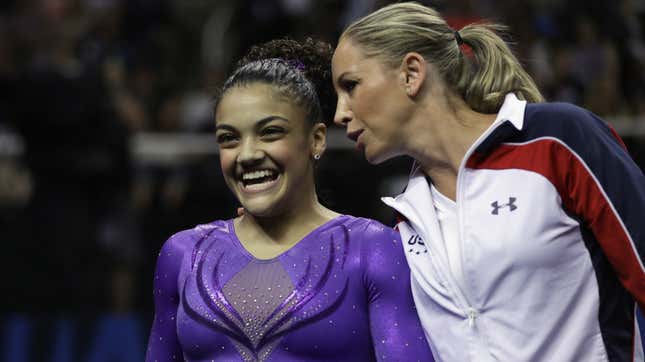USA Gymnastics Still Doesn't Know What to Do With Abusive Coaches
Latest

Maggie Haney, gymnastics coach and owner of MG Elite Gymnastics in New Jersey, has been suspended from coaching in the sport for eight years following a USA Gymnastics investigation into training conditions. Haney, who coached Olympic silver medalist Laurie Hernandez and rising star Riley McCusker, has been accused by six different families of verbal and emotional abuse, along with forcing gymnasts to train through injuries, according to a report by the New York Times. (According to the New York Post, Hernandez was among those who testified against Haney during USA Gymnastics’ investigation into the accusations.) After Haney’s eight-year suspension, she will be placed on two years probation, overseen by the notoriously ineffective SafeSport, before she’ll be allowed to reapply for membership with USA Gymnastics.
-

-

-

-

-

-

-

-

-

-

-

-

-

-

-

-

-

-

-

-

-

-

-

-

-

-

-

-

-

-

-

-

-

-

-

-

-

-

-

-








































